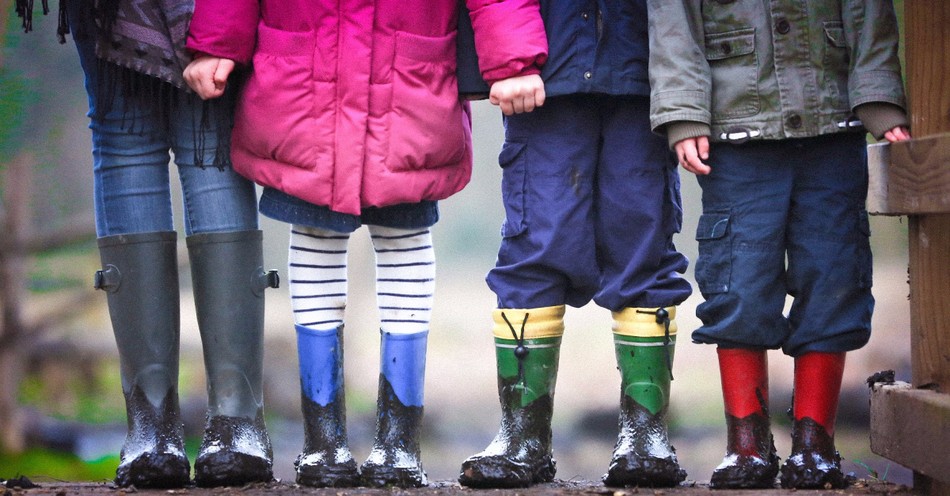Each chapter of the sexual revolution has featured an updated version of the same myth: “Don’t worry, the kids will be fine.” Sex with anyone anywhere? The kids will be fine.
Separate marriage from procreation? The kids will be fine. No-fault divorce? The kids will be fine. Graphic sex education in schools beginning in kindergarten? The kids will be fine. Same-sex marriages eliminating either a mom or a dad from the picture? The kids will be fine.
They weren’t.
Growing up in families without married parents, their well-being sacrificed for the sake of adult happiness, the kids have been the primary victims of our sexual experimentation. To cover our tracks, we’ve resorted to indoctrination, attempting to convince them of other myths, such as the idea that biological sex and their physical bodies are fully malleable. Kids today are literally taught to be skeptical of how they were made.
The kids are not fine. They’ve never been fine, in fact, not throughout this entire history of sexual redefinition. And I’m afraid, that the next chapter just began.
Even before Netflix released “Cuties,” that French movie about an 11-year-old girl who joins a twerking dance group to escape her conservative Muslim family, it received wide-spread backlash. Many critics, including all of us here at the Colson Center, were horrified to think that a movie featuring pornographic footage of very young actresses would be permitted to air. But it was.
Even worse, once the director wrote an op-ed in The Washington Post attempting to explain her intentions, she and her film have been defended in mainstream media outlets such as the Washington Post and on NPR. She was warning us about the sexualization of children through online technology, we were scolded, even if in the process, she sexualized actual children. The lead character, who is sexualized throughout the film, is played by an actual 11-year-old girl.
At the risk of sounding like the old man who yells “get off my lawn” to the enlightened minds at NPR, no 11-year old girl should be sexualized for any reason. Their defense of this film makes me think we’ve entered new territory.
Every stage of the sexual revolution has progressed the same way. A morally questionable activity enters our culture, not through moral argument, but through the imagination, typically via entertainment or some form of “artistic expression.” I’m old enough to remember how controversial “Beverly Hills 90210” was, as it skirted the edge of our cultural moral boundaries, depicting teenagers talking about sex but never actually doing it.
In the end, the characters mostly came down on the right side of the moral question, but not because of any appeal to a stable moral framework. Rather, the teens just “weren’t ready to take that step.” Just a few years later, say, on an episode of “Friends,” the teenager is having sex, with a teacher even. This time, it’s supposed to be funny. Before long, it’s “Glee”, and the teens aren’t just talking anymore. They’re doing, and they’re in Ohio, not LA. (We could trace the history of homosexuality from the “not that there’s anything wrong with that” days of “Seinfeld” to “Will and Grace” to “Modern Family.”)
At the end of “Cuties,” I’m told, the lead character leaves behind her twerking dance crew and returns to her conservative family. Her decision, of course, does not come from any moral framework, much less a condemnation of the pedophilia the film both portrays and commits.
The crisis is resolved through some weak notion like “self-discovery,” or “being true to yourself.” This means that in the next “Cuties” (and there will be a next one), the ending will be different. Maybe her fundamentalist parents learn to flex a little bit. Maybe in the one after that, she doesn’t go home at all. Before long, none of us are alarmed by pornographic portrayals of children.
What happened with sexual promiscuity, adultery, homosexuality, and currently, with transgenderism is happening with kids. We’ve already told them to determine their sexual identities. At the same time, the only ground left sexual morality is the flimsy notion of “consent.” Is it that much of a leap, really, from here to kids self-determining sexual behavior?
Just two weeks ago, California’s Governor signed a bill decriminalizing homosexual activity between an adult and a minor 14 or over, as long as there’s less than a 10-year age gap between the two and “consent” was given. Lawmakers said the bill was necessary for the equality of LGBT people, because heterosexual sex between a minor and an adult has already been decriminalized along the same lines.
I hate to say this, but the train of pedophilia has left the station. The kids definitely won’t be fine.
Publication date: September 30, 2020
Photo courtesy: Ben Wicks/Unsplash
The views expressed in this commentary do not necessarily reflect those of CrosswalkHeadlines.
BreakPoint is a program of the Colson Center for Christian Worldview. BreakPoint commentaries offer incisive content people can't find anywhere else; content that cuts through the fog of relativism and the news cycle with truth and compassion. Founded by Chuck Colson (1931 – 2012) in 1991 as a daily radio broadcast, BreakPoint provides a Christian perspective on today's news and trends. Today, you can get it in written and a variety of audio formats: on the web, the radio, or your favorite podcast app on the go.




